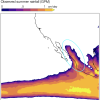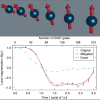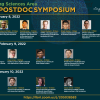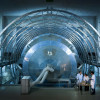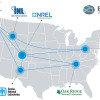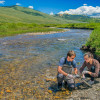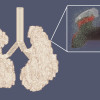News
Climate Simulations Redefine Causes of North American Monsoon
Using NERSC supercomputing resources at Berkeley Lab, researchers have discovered that the North American Monsoon, which produces over half the annual rainfall in northern Mexico and the American Southwest, forms mechanically, not thermally – the only such monsoon in the world. Read More »
Hopper Fellow Brings ML, Math, and Algorithmic Expertise to NERSC
Richard Barnes is the newest Admiral Grace M. Hopper Postdoctoral Fellow. Read More »
Cutting Through the Noise
A collaboration between Berkeley Lab’s Physics Division and the Applied Mathematics and Computational Research Division has yielded a new approach to quantum error mitigation - "noise estimation circuits" - that could help make quantum computing’s theoretical potential a reality. Read More »
Postdocs Present Wide-Ranging Research at 2022 Symposium
The Computing Sciences Area's postdoctoral research fellows presented their work at the 2022 Postdoc Symposium. Read More »
NERSC Resources Help Achieve Milestone in Neutrino Research
Berkeley Lab researchers and NERSC supercomputing resources played a key role in helping an international team achieve a new milestone in the study of neutrinos and their mass. Read More »
ESnet Plays Key Role in Groundbreaking ARIES 'Digital Twin' Demonstration
In December 2021, NREL's ARIES researchers teamed up with the Pacific Northwest National Laboratory and ESnet on a live demonstration of a microgrid modeling experiment that could have significant impact on energy system research. Read More »
Collaboration Charts New Course for Future of Field Research Data
Spearheaded by DOE's ESnet, new investments in local 5G connectivity and remote satellite data backhaul is providing a high-tech road map for the future of data in field research. Read More »
SIMCoV Models Cell-by-Cell Spread of Respiratory Infections
Berkeley Lab computational research scientist Steve Hofmeyr is part of a team that developed SimCoV, which can provide a 3D simulation of a portion of the lung and model the ways in which COVID-19 and other viral infections spread in the lungs. Read More »
Berkeley Lab’s FasTensor Provides Pain-Free Big Data Analysis
With FasTensor, researchers in Berkeley Lab’s Scientific Data Management Group developed an open source tool to help its users efficiently process and analyze their massive datasets. Read More »







 Instagram
Instagram YouTube
YouTube